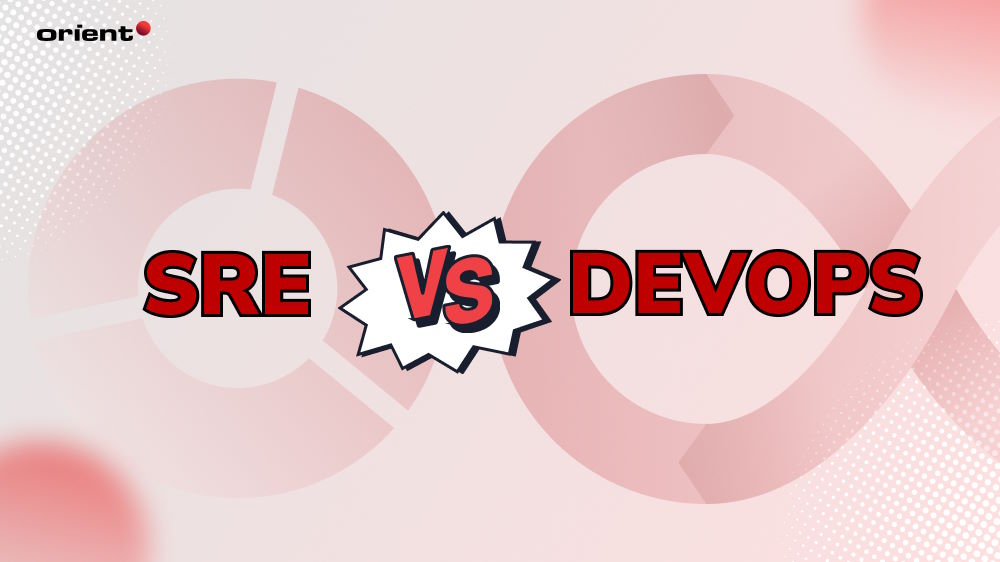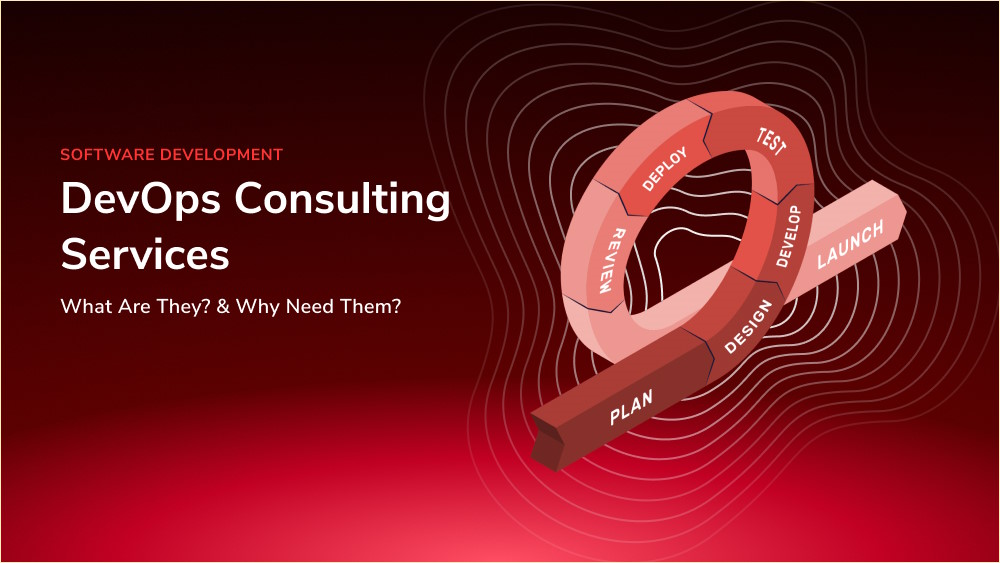The Great Debate: SRE vs. DevOps - What Is the Difference and Which Is Right for You?

Content Map
More chaptersThe tech world has been buzzing about them for years - Site Reliability Engineering (SRE) vs. DevOps, two heavyweight approaches to application delivery claiming to de-risk deployments and accelerate software updates. However, what are SRE and DevOps, and how do they distinguish themselves from each other? Most importantly, which methodology aligns best with your organization’s needs and goals?
In this corner, we have SRE - the Google-pioneered practice focused on optimizing operational efficiency through automation, on-call rotations, and rigorous monitoring. And in the other corner is DevOps - a culture-first methodology that levels silos between development and operations.
But is it really an “either-or” choice between these titans? In this no-holds-barred analysis, we’ll seek to clarify the distinctions between SRE and DevOps by examining their core philosophies, methodologies, tooling, and organizational impacts. Key criteria for evaluation include release processes, change failure rates, mean time to recovery, and customer satisfaction. The pros and cons of each model are analyzed based on empirical data and lessons learned.
But before we dive into the details, let’s define what SRE and DevOps are and why they matter.
What is Site Reliability Engineering (SRE)?

Site Reliability Engineering (SRE) refers to a discipline that combines software engineering and operations to build and maintain reliable, scalable, and efficient systems. SRE was originated by Google in the early 2000s and has since been adopted by many other companies in the tech industry. SRE is often considered a subset or an extension of DevOps, which is a culture and a set of practices that emphasizes collaboration and automation between development teams and operations teams.
Key Tenets of SRE:
- Reliability: SRE places a strong emphasis on system reliability, aiming to minimize service disruptions and downtime. This involves proactive monitoring, fault tolerance, and disaster recovery planning to ensure consistent and dependable operation.
- Scalability: SRE focuses on designing systems that can handle increasing workloads without sacrificing performance or reliability. It involves horizontal scaling, load balancing, and capacity planning to accommodate growing user demands.
- Performance: SRE strives to optimize system performance and reduce latency. This includes analyzing bottlenecks, optimizing resource utilization, and implementing performance monitoring and profiling tools to deliver fast and efficient services.
SRE plays a critical role in ensuring the stability and availability of large-scale systems by applying engineering principles to operations. SRE teams collaborate with software developers to build reliable and scalable architectures and implement effective incident management practices.
They help define and measure service level indicators (SLIs), which are metrics that reflect the quality of service provided by a system, such as availability, latency, throughput, and error rate. Site reliability engineers also help establish and enforce service level objectives (SLOs), which are targets or thresholds for SLIs that reflect the expectations and needs of the users and the business.
SRE is not a one-size-fits-all approach but rather a set of principles and practices that can be adapted and applied to different contexts and domains. An SRE team can help organizations achieve higher levels of reliability, scalability, efficiency, and security in their production system management while also enabling faster and more frequent delivery of new features and functionality.
A Brief Overview of DevOps

DevOps is a software development approach that combines development (Dev) and operations (Ops) teams to foster collaboration, streamline processes, and deliver high-quality software products more efficiently. It emphasizes communication, shared responsibilities, and a culture of continuous improvement.
The core principles of DevOps:
- Collaboration: DevOps fosters a culture of effective communication and tight collaboration between development and operations teams. By breaking down silos and leveraging cross-functional collaboration, organizations can achieve faster feedback loops and more effective problem-solving.
- Automation: Automation plays a vital role in DevOps, allowing organizations to automate repetitive tasks, reduce human error, and accelerate development and deployment processes. Automation tools are used to streamline builds, testing, deployment, and infrastructure management.
- Continuous Integration and Continuous Delivery (CI/CD): DevOps promotes the practice of integrating code changes frequently and delivering software in small, incremental releases. CI/CD pipelines automate the build, test, and deployment processes, enabling more reliable and faster software delivery.
DevOps bridges the gap between development and operations by integrating them into a single, continuous process. DevOps teams share the same vision, values, and objectives and work together throughout the entire software lifecycle, from planning to testing and deployment.
These skilled DevOps engineers leverage various tools and techniques to automate and streamline processes, such as continuous integration, continuous delivery, configuration management, monitoring, and feedback, ultimately enhancing the efficiency of the DevOps engineer role.
DevOps is not a rigid or prescriptive methodology but rather an adaptable and flexible approach that can be applied to different contexts and domains. A DevOps team can help organizations achieve higher levels of agility, efficiency, innovation, and customer satisfaction for their software products and services.
The Key Differences Between SRE and DevOps
While both SRE and DevOps aim to enhance the software development process and delivery, they also have some key differences that distinguish them from each other. Here are four of them:
Scope of Responsibility
- DevOps: DevOps teams emphasize the entire software development lifecycle, from design to deployment and beyond. They are involved in every stage of the process, from planning and coding to testing and releasing. They also maintain and monitor the systems in production and provide feedback and support to the developers.
- SRE: SRE teams primarily focus on ensuring the reliability and performance of live systems. They are responsible for keeping the systems up and running and meeting the service level objectives (SLOs) and error budgets defined by the business and the users. They also work closely with the developers to provide guidance and feedback on how to design and implement reliable systems.
Goals and Objectives
- DevOps: DevOps teams promote collaboration and agility to deliver software faster and more efficiently. They aim to reduce the time and effort required to develop, test, and deploy software and to increase the frequency and quality of software releases. They also strive to enhance customer satisfaction and value by delivering software that meets their needs and expectations.
- SRE: SRE teams prioritize system reliability, uptime, and performance to meet service level objectives (SLOs). They aim to ensure that the systems are stable, scalable, efficient, and secure and that they provide a consistent and high-quality service to the users and the business. They also strive to balance the trade-off between reliability and innovation by using error budgets to manage risk and change.
Skillset and Expertise
- DevOps: DevOps teams have cross-functional skills covering development, operations, and automation. They have a broad knowledge of various tools and technologies, and they can work on different aspects of the software system, such as coding, testing, configuration, deployment, and monitoring. They also have strong communication and collaboration skills, and they can work effectively with other teams and stakeholders.
- SRE: SRE teams have strong technical skills, including systems engineering, automation, and incident management. They have a deep understanding of how software systems work, and they can design, develop, and operate them using software engineering principles and practices. They also have strong problem-solving and analytical skills, and they can handle complex and critical situations.
Approach to Failure
- DevOps: DevOps teams embrace failure as an opportunity for learning and improvement. They adopt a blameless culture, where failures are not seen as personal faults but as sources of feedback and insights. They use various methods, such as retrospectives, root cause analysis, and experiments, to learn from failures and prevent them from recurring.
- SRE: SRE teams implement proactive measures to prevent failures and minimize their impact. They use various techniques, such as automation, self-healing, and redundancy, to detect and resolve failures before they affect the users and the business. They also use various practices, such as postmortems, service level indicators (SLIs), and error budgets, to analyze and manage failures and to improve reliability.
Which is Right for You? Considerations and Recommendations
Choosing between Site Reliability Engineering (SRE) and DevOps can be a challenging decision. Both methodologies offer unique approaches to software development and system management, each with its own set of benefits and considerations. In order to determine which path is right for you and your organization, it’s essential to evaluate various factors. Let’s explore the key considerations to help you make an informed decision:
Organizational Culture and Maturity
- DevOps: If your organization values collaboration, agility, and cross-functional teamwork, DevOps may be the ideal choice. DevOps strengthen a culture of continuous improvement and shared responsibility, breaking down silos between development and operations teams.
- SRE: On the other hand, if your organization prioritizes reliability, stability, and scalability, SRE may be the better fit. SRE emphasizes a culture of engineering excellence, where teams focus on building and maintaining highly reliable systems.
Project Complexity and Scale
- DevOps: If your projects involve diverse technologies, complex infrastructure, or frequent deployments, DevOps can provide the necessary flexibility and automation to manage the complexity effectively. DevOps practices, namely continuous integration and continuous delivery (CI/CD), enable rapid and reliable software releases.
- SRE: For large-scale, mission-critical systems with demanding performance requirements, SRE’s dedicated focus on reliability and scalability becomes invaluable. SRE principles help ensure that systems can handle high traffic loads, recover from failures efficiently, and meet rigorous service level objectives (SLOs).
Resource Availability and Expertise
- DevOps: Implementing DevOps requires a broad skillset across development, operations, and automation. It relies on cross-functional teams that collaborate and share responsibilities. If you have a diverse team with a range of skills or the willingness to invest in upskilling, DevOps can be a viable option.
- SRE: SRE demands specialized technical expertise in areas like systems engineering, automation, and incident management. Building a dedicated SRE team allows you to focus on system reliability with a laser-sharp focus. However, it’s essential to ensure that you have the necessary resources and expertise to support this approach effectively.
Business Priorities and Goals
- DevOps: If your primary focus is on rapid delivery, frequent feature releases, and fast time-to-market, DevOps aligns well with these goals. DevOps promotes Agile development, allowing you to iterate quickly and respond to customer needs promptly.
- SRE: If your business priorities revolve around system stability, uptime, and performance, SRE offers a systematic approach to achieve these objectives. SRE ensures that your systems remain reliable and available to provide a seamless user experience.
Hybrid Approach of SRE and DevOps? Why Not?
While SRE and DevOps differ in origins and methodologies, the overarching goal of both is reliable software delivery at scale. Rather than consider them mutually exclusive, organizations should evaluate how they can leverage the complementary strengths of each approach.
SRE’s rigorous engineering practices for availability, latency, change management, and on-call support can bring structure to development workflows. At the same time, DevOps’ cultural shifts toward cooperation and shared goals/incentives between teams can optimize collaboration.
The most effective strategy may be a hybrid model that adopts relevant aspects of SRE operational processes and DevOps cross-functional integration based on individual needs. With the right cultural mindset and tailored tooling, SRE and DevOps principles can work hand in hand toward building robust and responsive systems.
However, deconflicting these approaches and change management requires a nuanced understanding. If you remain unsure how to apply SRE, DevOps, or a hybrid model or need guidance implementing new technical operations strategies, Orient Software is here to help. Our experts have deep experience deploying SRE and DevOps in varied environments.
We offer consultations to strategize the optimal path forward based on your technical and business objectives. So, if you’re still grappling with the decision between Site Reliability Engineering vs. DevOps or require support translating plans to practice, don’t hesitate to reach out.







